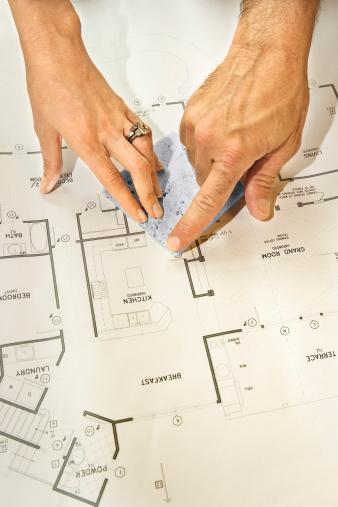To DIY or Not to DIY? When to Do It Yourself and When to Call a Pro
When should you DIY and when should you leave it a professional?
If the TV programming landscape is any indication, the DIY spirit in our country is alive and well. And it should be. As a country, we tend to be independent and self-sufficient. When it comes to home improvements, however, do-it-yourself may not always be the answer, so it’s important to know when to call in a professional.
The most common projects that I see DIYers attempting are:
- Painting, both interior and exterior
- Replacing a front or other entry door
- Replacing interior trim
- Installing fencing
- Installing new flooring
- Laying down new patio and paver walkways
- Landscaping
- Changing lighting fixtures
- Updating garage and other storage areas
- Installing new siding
Some of these are simple fixes for even a novice DIY-er, but others can leave you with a big mess, both aesthetically and financially, if something goes awry.

If you’re not sure whether to attempt a project or call an expert, ask yourself these questions:
1. Have I done a project like this before?
If you answered yes (and have good memories of the previous attempts!), pursuing this project should be easy. Being comfortable off the bat is obviously helpful—if challenges arise, you will be better equipped to solve them.
2. Do I feel comfortable taking on a new challenge or new type of project?
If it’s a new type of project (or you had a poor experience on a prior attempt), do your research. Plenty of online discussions and YouTube videos will give you the basics on how to proceed, or at least will help you realize you’re not ready. If you need hands-on instruction, bigger home centers and stores will offer workshops for different types of projects that can help get you moving.
3. Do I have a resource to turn to if I have questions?
Having someone to fall back on if you get in over your head is key. Make friends with your local contractor! You never know when you might need some fast help. If I know a friend is in the middle of a DIY project and he comes up on caller ID, I usually answer “Dino’s construction hotline.” I know why they’re calling and I know I can help.
4. Is this going to involve any structural framing? If so, do I have a plan to address potential issues?
No one has x-ray vision. There are all kinds of hidden surprises in the walls, floors and ceilings. If you have a questions, ask first and cut later. Especially if it is anything related to engineered lumber and trusses. Once they are cut, they can lose all weight carrying capacity. Better to go slow and have a pro or engineer look at it first.
5. Will this involve electrical, plumbing or HVAC work?
Back to surprises in the wall. There are many pipes and wires lurking behind walls and flooring so go slow and proceed with caution. If you strike something, don’t just tape it, glue it or wrap it in duct tape. Have a pro look at it and fix it correctly. I can tell you multiple horror stories of electrical and plumbing that I have seen buried in the wall. I know my limits; we do not touch electrical plumbing or HVAC. We hire the pros.
6. Do you have a habit of starting and not completing projects?
I have looked at many projects that were started by the homeowner and never completed. Sometimes life happens. Sometimes we get in over our head. Sometimes we are just better at ripping things apart, then putting them back together. I get it, but it’s still not ideal. Whatever the case, if you have a habit of starting and not finishing, maybe you should hire a pro.
7. How long will the project take? Can I live in the area while work progresses?
I wrote an earlier blog post about living through a remodel project. Having the added pressure of doing the work yourself, while also likely working a separate, full-time job, and living through it can be a real challenge. Weigh the options to see if your time, and quality of life, is worth the money to hire a pro.
8. Do I have all of my supplies?
Most DIYers are evening and weekend warriors. That can lead to needing a critical supply after the home centers and supply houses have closed. Be prepared with all of your supplies ahead of time.
Overall, it really comes down to budget and time. If you‘re on a tight budget and feel comfortable with the project or enjoy the work, then by all means dive right in. Remember, you are still responsible for obtaining all building permits and meeting all building codes. Don’t skip it! The inspector will be able to look at what you plan to do from a safety standpoint and make sure that it is safe to attempt.
Keep in mind: projects rarely go off without some challenges, and never as easily as they show on TV. Have a backup plan and someone you can turn to for advice.
“Dino’s construction hotline, how can I help?”

